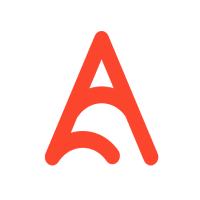What Are ZK Roll Ups: A Complete Guide

Are you curious about the latest advancements in blockchain technology? Have you heard about ZK Roll Ups but aren't quite sure what they are or how they work? Look no further! In this comprehensive guide, we will explore the ins and outs of ZK Roll Ups, including their definition, mechanics, and potential impact on the blockchain and financial industries.
Understanding ZK Roll Ups
ZK Roll Ups, short for Zero-Knowledge Rollups, are a layer 2 scaling solution for Ethereum and other blockchains. They are designed to improve the scalability and efficiency of blockchain networks by moving most of the transaction processing off-chain.
One of the key features of ZK Roll Ups is their use of zero-knowledge proofs, a cryptographic technique that allows a prover to demonstrate knowledge of a secret without revealing the secret itself. This enables users to securely validate transactions without the need to process them on the main blockchain.
How Do ZK Roll Ups Work?
The basic idea behind ZK Roll Ups is to bundle multiple transactions into a single batch and then generate a cryptographic proof that attests to the validity of those transactions. This proof is then submitted to the main blockchain, where it can be verified by anyone without the need to process each individual transaction.
By aggregating transactions off-chain and only submitting proofs to the main blockchain, ZK Roll Ups can significantly reduce the computational load on the network, leading to lower fees and faster transaction times. This makes them an attractive solution for applications that require high throughput and low latency.
The Benefits of ZK Roll Ups
There are several key benefits to using ZK Roll Ups, including:
- Scalability: ZK Roll Ups can dramatically increase the transaction throughput of blockchain networks, enabling them to process thousands of transactions per second.
- Privacy: By keeping most of the transaction data off-chain, ZK Roll Ups offer enhanced privacy and anonymity for users.
- Cost-efficiency: The reduced computational requirements of ZK Roll Ups can lead to lower transaction fees, making them a more cost-effective solution for users.
In conclusion, ZK Roll Ups are a powerful tool for improving the scalability, privacy, and efficiency of blockchain networks. By leveraging zero-knowledge proofs and off-chain computation, they offer a promising solution to the challenges facing the blockchain industry. As this technology continues to evolve, we can expect to see even greater advancements in the field of decentralized finance and beyond.
Related articles
Latest articles
See more




























